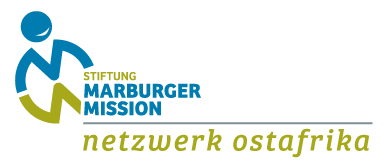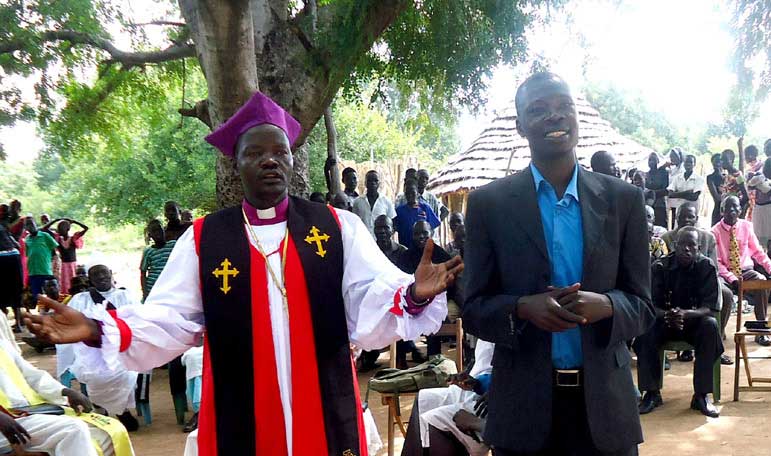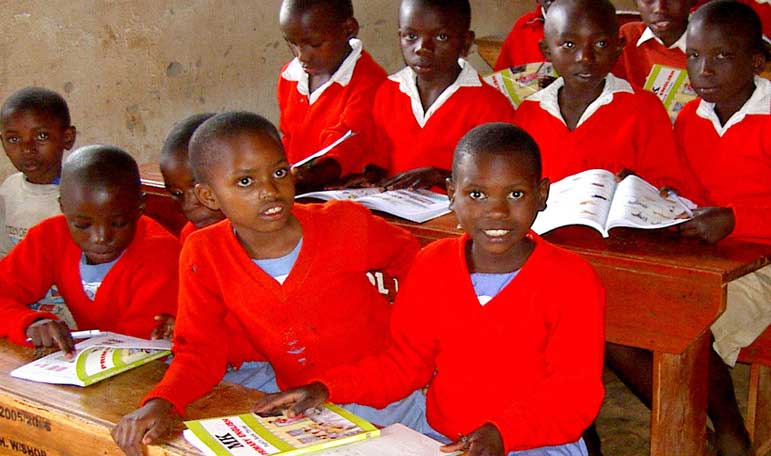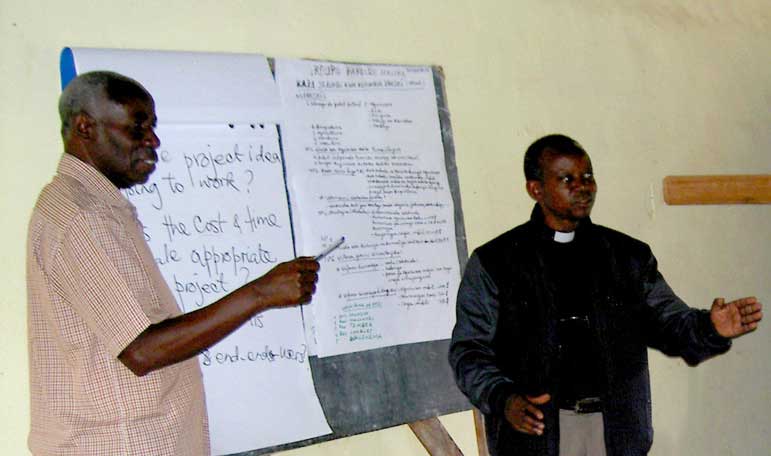Promoting Peace
“Peace cannot be kept by force; it can only be achieved by understanding.”
(Albert Einstein)
Objectives
We support communities in trauma healing skills, enable them to apply peaceful conflict resolutions and to strive peacefully for justice.
How we work
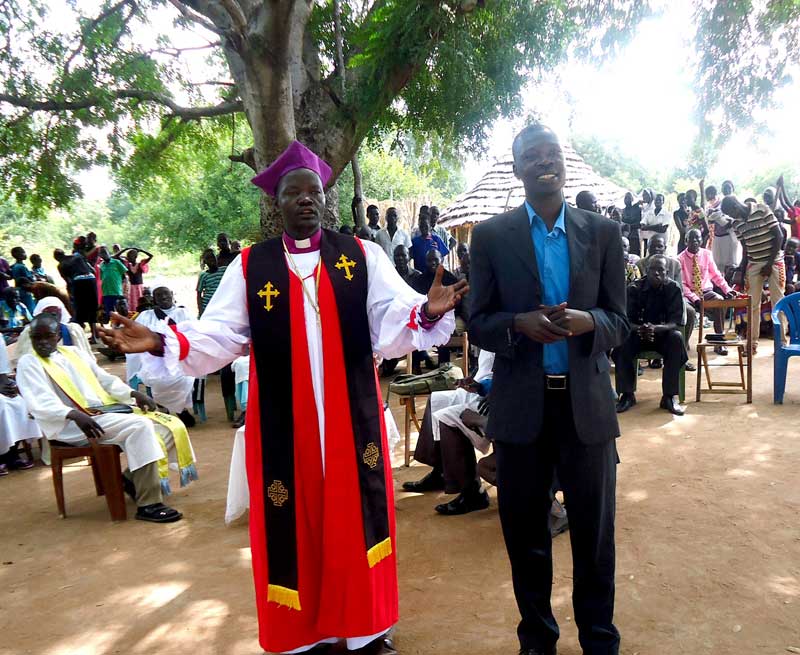
For about 25 years, South Sudan fought for independence. During this time, a generation grew up who learned to resolve conflicts with arms. In 2011, the country got its independence and the vast majority longed for peace. However, conflict resolution strategies between clans and tribes do not simply change by signing peace agreements.
In the east of DRC, people face bloodshed, looting and displacement since colonial times. Young people experience this violence increasingly as ‘normal’ since they have never experienced another reality.
In order to promote peace and healing in a multiple wounded society, schools, families and churches play an important role. These institutions shape young people with values. In both countries, churches are well trusted. They strengthen education in society and people seek their advice.
Since faith based institutions are tusted by local people, they are able to promote healing and reconciliation in a multiple wounded society.
Network East Africa supports the Church in the north west of South Sudan and the east of DRC to promote peace, healing and striving for justice.
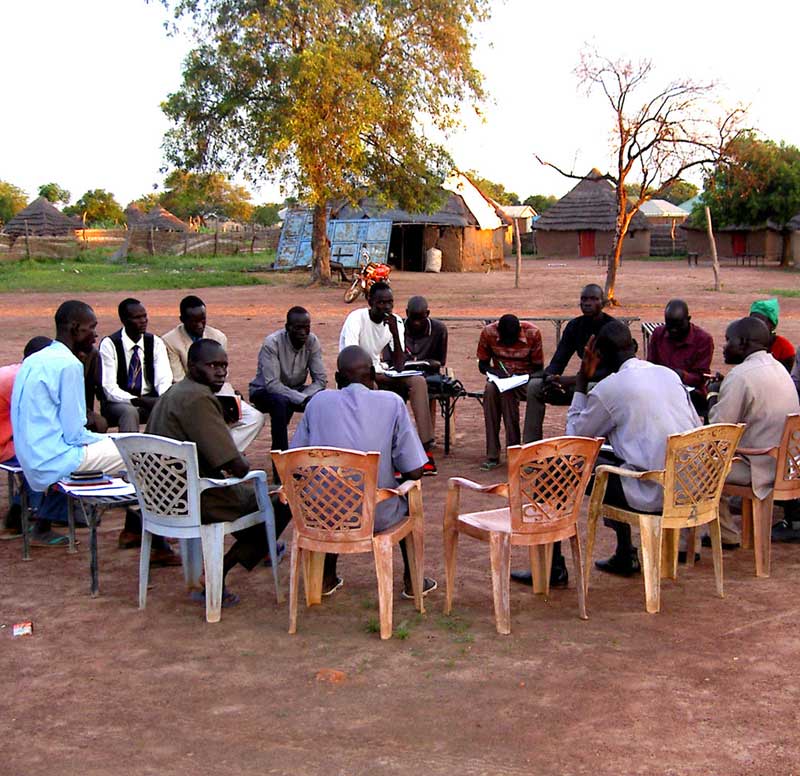
In this process we are searching for answers:
- What kind of cultural stories, proverbs or national heroes do exist in society to promote peace, healing and peaceful striving for justice?
- How can church workers help civilians to deal with traumatic experiences in a culturally appropriate way?
- What words and pictures can be used in tribal languages so that forgiveness and reconciliation are not understood as weakness, but as an inner strength?
- How can victims of violence overcome victim-perpetrator thought-patterns? What can strengthen them to take responsibility and strive peacefully for justice?
- How can the Church contribute towards transforming historical harms so that the young generation does not inherit parental hatred (healing of historical memories and narratives)?
- …
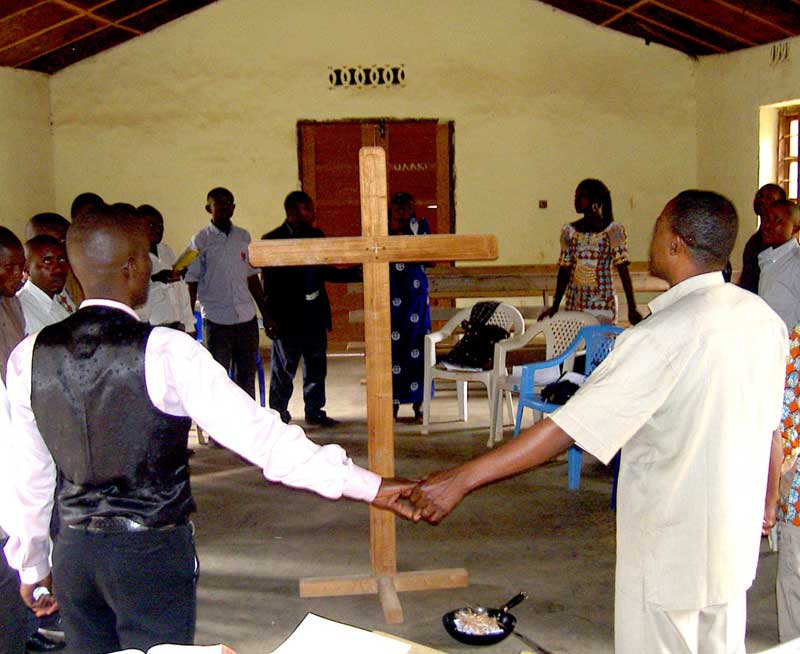
Since most of our participants find abstract thinking a challenge, we mainly worke with case studies, drama and stories. Stories are close to real life situations and offer space to apply its message without offending someone. Questions raise interest and encourage someone to find new ideas – which increases self-confidence. Drama involves people’s emotions and reveal unreflected attitudes.
Those conversations provide space to share own experiences, promote reflecting on the current situation…
All over the world people have much competence and experience. They are the real experts of their culture and history.
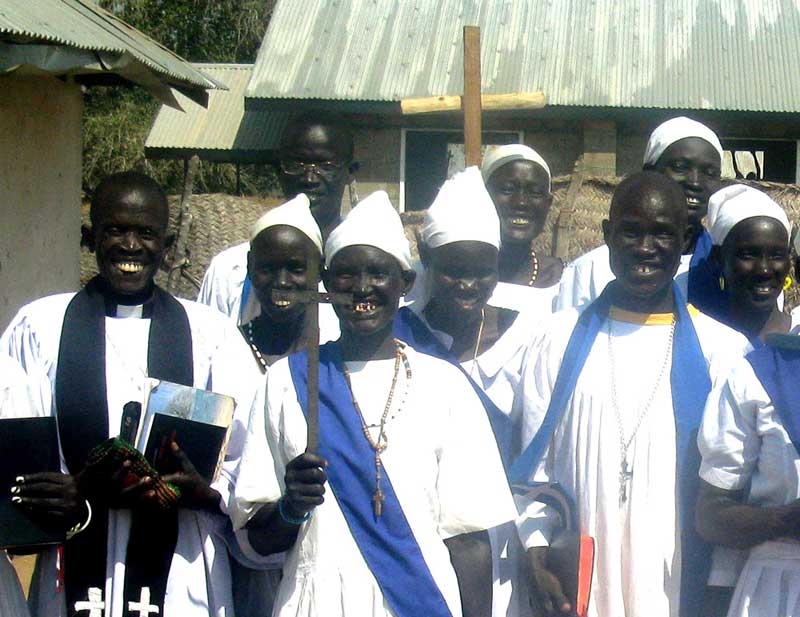
We are committed to value this knowledge and support people in developing their own solutions. This creates dignity, releases strength and supports personal responsibility.
While working with multiple wounded societies, we have experienced Christian faith as a great potential for healing. Through Christ’s example, forgiveness is demonstrated practically and tangible. This inspires to forgive others.
In addition, faith in Christ creates self respect and dignity. This enables to recognize others also as “image of God” (Genesis 1:27).
Voices from Friends and Partners
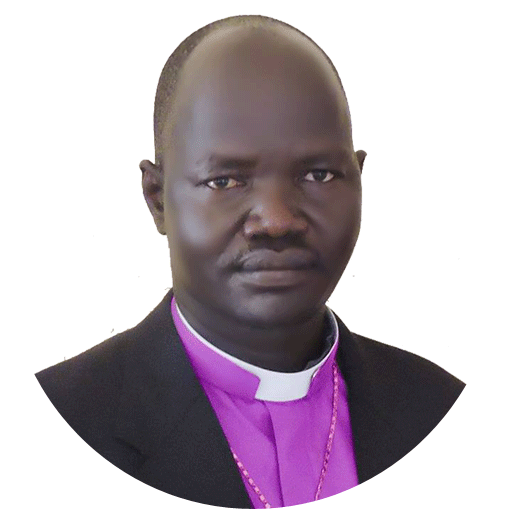
I appreciate Network East Africa for the partnership with our Diocese. We facilitate together training for our priests in trauma healing, peace and reconciliation work. This promotes healing and forgiveness in our society.
Bishop Abraham Ngor, Diocese of Gogrial (South Sudan)
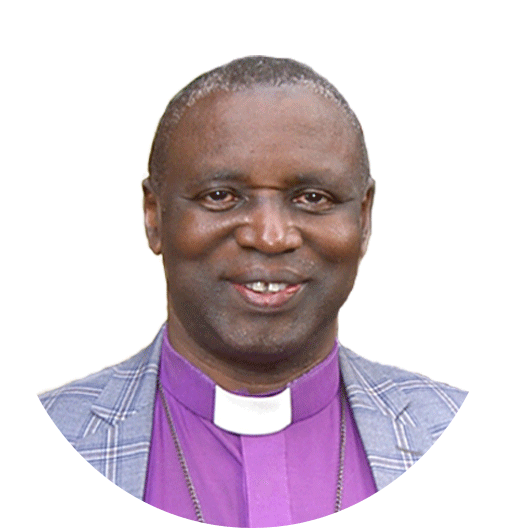
Our area in the east of DRC suffers from insecurity and violence. Together with Network East Africa, we developed a peace education program for our schools and churches. We are very grateful and convinced to make a contribution towards peace in the region.
Bishop Muhindo Isesomo, North Kivu Diocese (DRC)
Background
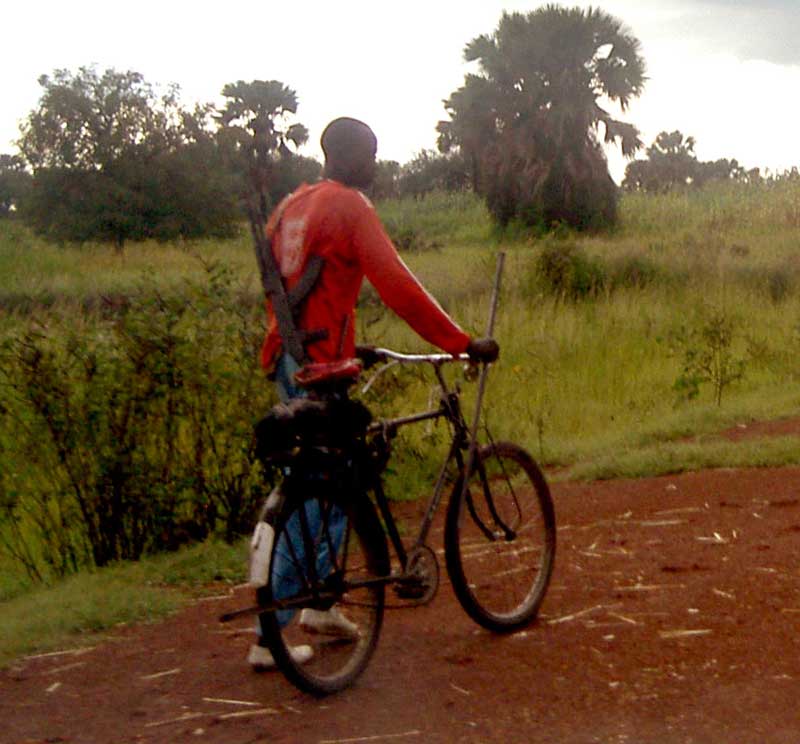
For over 300 years, people from Bahr el Gazal region in South Sudan have been enslaved and deported. Whole tribes have been extinguished. Only those with a strong fighting mentality could survive the well-organized slave trade. This reality shaped the way people think, feel and behave.
In addition, the young generation fought for about 25 years for independence. During this time, a generation grew up who learned to resolve conflicts with arms. The country got its independence in 2011 and soon, old conflicts between tribes and clans sparked off again. After years of conflict, a peace agreement was signed in September 2018. To implement any peace agreement, trust must be rebuilt.
In the east of DRC, looting and ethnic based displacement have tourtured civilians since colonial times. After the genocide in Rwanda in 1994, bloodshed increased. Local warlords, often on behalf of multinational corporations, exploit the country’s rich natural resources. Thereby, they tyrannize civilians. These traumatized people often traumatize others again. Rape and murder are considered as effective wapons by many armed groups.
Together with our partners, we are committed to promote healing, peace and justice. This prepares the ground for reducing famine caused by displacement and paves the way for sustainable development work.
Partner organisations
Diocese of Gogrial
Episcopal Church of South Sudan
Diocese of Wau
Episcopal Church of South Sudan
North Kivu Diocese
Eglise Anglicane du Congo
